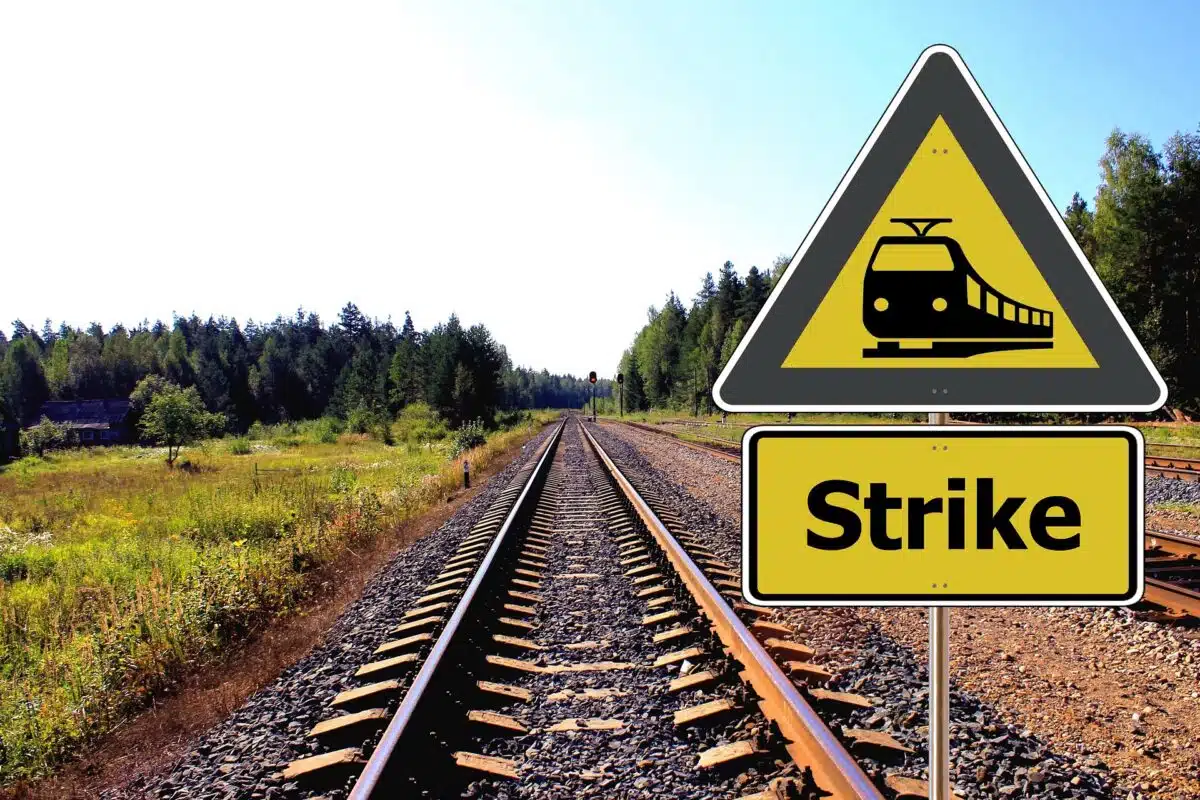One of the things France is famous for is strikes. It usually raises a lot of questions and the publicity can make it seem like the French strike more than they work. In this blog, you will learn about strikes in France, and most importantly, how you can prepare for them and reduce disruptions to your daily life.
Why DO French people strike so much?
The French are known for having a mind of their own. Protests (les manifestations / les manifs) and strikes (la grève) are a way for the people to express their dissatisfaction about any topic. This culture stems from historical employer/employee relations. The French government legalized strikes in 1864 and authorized trade unions twenty years later. During this time, conflicts and power struggles between employers and employees grew substantially. After WW2, countries in northwestern Europe (the Nordics, Germany and the United Kingdom) rebuilt their workforce relations along the principle of ‘peaceful regulation’, a more conciliatory approach. France, Spain and Italy, however, built systems of ‘conflictual regulation’, where both sides show their teeth. Discussions on how to get out of the crisis tend to be longer and more antagonistic.
How to prepare for strikes
If you plan on living in France, you will inevitably experience a strike. Here are some tips to be aware of when they happen and what you can do to help reduce disruption to your daily life.
Public transportation
If you live in a town, big or small, using public transportation may be part of your daily routine.
- Keep track of the news (actualités) and public transport (transport public) updates: each town usually has a dedicated app and/or website for public transport news. For example, in Lyon it’s called “TCL” and in Montpellier “TaM”. These will tell you which bus lines, trams, trains and subways (métro) are affected, how often they will be running, and if there are any replacement buses/shuttles.
- Plan in extra time for your daily journeys.
- Explore alternatives such as bikes or electric scooters which you can now often find for rent (by the minute or distance traveled) in most major cities, if you don’t have your own.
Train
The national rail company called SNCF (Société Nationale des Chemins de Fer Français), has a bit of a bad rep, as even without strikes, trains are often delayed. Their communication isn’t very good, either. For example, you might find out that the train you usually take for your commute won’t be running for 6 months when you go to book.
However, SNCF usually does tell you if your train will be canceled due to strikes (grèves), but generally only two days before.
In this scenario you have three options:
- Take the risk and keep your train ticket
- Reschedule your travel (this may or may not have an extra cost, depending on the type of ticket originally purchased).
- Arrange an alternative mode of transportation such as carpooling (covoiturage) or the bus (if they are circulating).
Airplane
There are usually three types of air travel strikes: either air-traffic controllers strike, individual airlines and their personnel, or the airport staff.
In the event of a general airport strike, the staff running the airport will not be at full capacity. You should therefore get to the airport much earlier than usual to go through check-in and security procedures in time to get your flight.
In the case of an airline strike, you will usually be informed about any changes by email as soon as the company knows which flights are concerned. If your flight is canceled or delayed, the airline must give you some sort of compensation. It can be a refund or a free plane ticket change.
When air-traffic controllers strike, it impacts the air and airport traffic, meaning your flight can be delayed. Unfortunately, in this case there’s not much you can do about it, apart from making sure you have snacks, a good book and your chargers on hand for electronics!
Schools
Strikes at school depend on the individual teachers as well as the type of school management.
Some schools will offer a “day care” service, accepting children despite there being few or no teachers, but this depends entirely on staff availability. If you don’t know beforehand, your only option will be to collect your child/children when they find out their classes are canceled. Schools often do send out a pre-warning with any solutions available, so make sure you’re checking in their “carnet de correspondance” (communication booklet) for any notes from the school or specific teachers.
School cafeterias and daycare/after-school solutions can also be affected by strikes.
When there’s no cantine (cafeteria), often your only solution is to collect your child/children for them to eat at home or arrange for them to eat outside the school. Some international schools may allow packed lunches, but in most state schools, packed lunches, even in the event of a cafeteria strike, are not allowed.
If you are bringing your child to daycare, you may need to book your child’s spot the day before since they can’t take care of as many children. Usually they will ask you to call them to book a space but it does happen that no one answers! This recently happened to one of our team members, and her solution was to do it “à la française” (the french way), which means showing up at the daycare and arguing until they accepted to take her child!
Unfortunately we don’t always have the gumption for that kind of debacle, so if you prefer to play it safe, you may have to take the day off work or rely on friends and family.
We hope you find this guide helpful in reducing some of the stress strikes can cause. Do you have any questions? Let us know in the comments below.
Be sure to come back soon and check out our next blog articles about how to navigate life in fabulous France. Until then, take care! – Prenez soin de vous !
All articles by: Leslie Belliot



